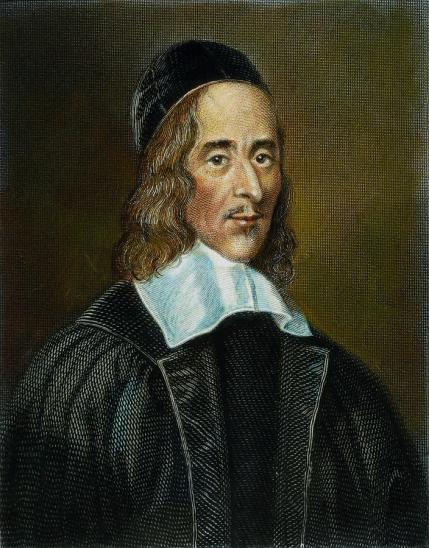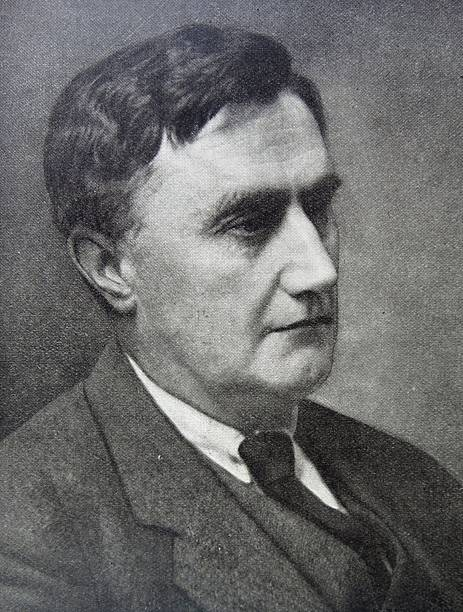Great poetry in the hands of a great composer:
Let All the World in Every Corner Sing
by Jennifer Whiting, Music Director
I like to meditate on great hymn texts. They speak to my soul. As George Herbert wrote, "A verse may find him who a sermon flies."i
 George Herbert was a 17th-century Anglican poet and priest. His prayer life was the wellspring of his writings. A century later, John Wesley became a fan of Herbert and adapted nearly 50 of his poems as Methodist hymns.ii Many of the borrowed poems were from a collection titled The Temple, published after Herbert's death.
George Herbert was a 17th-century Anglican poet and priest. His prayer life was the wellspring of his writings. A century later, John Wesley became a fan of Herbert and adapted nearly 50 of his poems as Methodist hymns.ii Many of the borrowed poems were from a collection titled The Temple, published after Herbert's death.
Two of Herbert's texts still appear in the 1989 United Methodist Hymnal. They are "Come, My Way, My Truth, My Life" and "Let All the World in Every Corner Sing." Herbert's vivid images and humble devotion invite us into a personal encounter with the Divine. His intimate scenes help us to see ourselves in new ways.
Herbert's title for "Let All the World in Every Corner Sing" is "Antiphon," which means a responsive reading or song. His original poem appeared with directions for "Cho." (chorus) and "Vers." (versical, a short verse sung or spoken by a leader and followed by a response from the people). Here is the poem with Herbert's original spellings and directions.
Antiphon
Cho. Let all the world in ev'ry corner sing,
My God and King.
Vers. The heav'ns are not too high,
His praise may thither flie:
The earth is not too low,
His praises there may grow.
Cho. Let all the world in ev'ry corner sing,
My God and King.
Vers. The church with psalms must shout,
No doore can keep them out:
But above all, the heart
Must bear the longest part.
Cho. Let all the world in ev'ry corner sing,
My God and King.iii
The English composer Ralph Vaughan Williams recognized that Herbert's "Antiphon" is an ideal text for a choral song of praise. He included it as the final, joyful movement of his Five Mystical Songs (a cycle of poems by George Herbert). This year marks the 150th anniversary of Vaughan Williams' birth, and the Glen Ellyn-Wheaton Chorale will perform this exciting anthem in our spring concert, accompanied by organ, piano, handbells, and percussion.
 Religious poetry and music can have universal appeal. Ursula Vaughan Williams wrote about her husband's religious position, "He was an atheist during his later years at Charterhouse and at Cambridge, though he later drifted into a cheerful agnosticism: he was never a professing Christian."iv
Religious poetry and music can have universal appeal. Ursula Vaughan Williams wrote about her husband's religious position, "He was an atheist during his later years at Charterhouse and at Cambridge, though he later drifted into a cheerful agnosticism: he was never a professing Christian."iv
Great poetry in the hands of a great composer creates a guided meditation for the listener, regardless of personal religious views. Using musical devices to illuminate the meaning of the words is called "text painting." It is fascinating to notice these details in the music.
Let's look at a couple of ways Vaughan Williams' skilled composition helps us to experience Herbert's text. For instance, the composer assigns the words "the heavens are not too high" to the high voices, and "the earth is not too low" to the low voices.
Herbert uses the refrain "all the world in ev'ry corner." John Donne famously used this same image in his sonnet, "At the round earth's imagined corners, blow your trumpets, angels." (Incidentally, the families of Herbert and Donne were close friends, and Herbert studied the work of Donne. No doubt, George had John's sonnet in his mind.)
We are familiar with the expression "the four corners of the world," which means "to the farthest reaches in every direction—north, south, east, and west." To amplify this thought, the composer layers one voice upon another, singing "Let all the world, let all the world, let all the world" as though people over the whole earth are adding their voices to the chorus of praise.
Listen for text painting in this phrase, "But above all, the heart must bear the longest part." The composer prolongs the notes on the word "longest." While the church is shouting psalms, the poet reminds worshipers to prolong God's praise in their hearts even after they leave the sanctuary.
If you would like to read another poem by Herbert, I recommend "Love III" (Love bade me welcome). It is my favorite. And if you would like to hear Vaughan Williams' setting of "Antiphon," we invite you to our May concert! Please join us for this and many other great works of art on May 6 and 7 at College Church in Wheaton.
i Herbert, George; from "The Church-porch"; The Temple; published posthumously, 1633, Cambridge.
ii Leach, Elsie A.; John Wesley's Use of George Herbert; Huntington Library Quarterly, Vol. 16, No. 2 (Feb. 1953), pp. 183-202; University of Pennsylvania Press.
iii Herbert, George; "Antiphon"; The Temple, 1633, Cambridge.
iv Vaughan Williams, Ursula; R.V.W.: A Biography of Ralph Vaughan Williams (Clarendon Paperbacks), March 18, 1993.